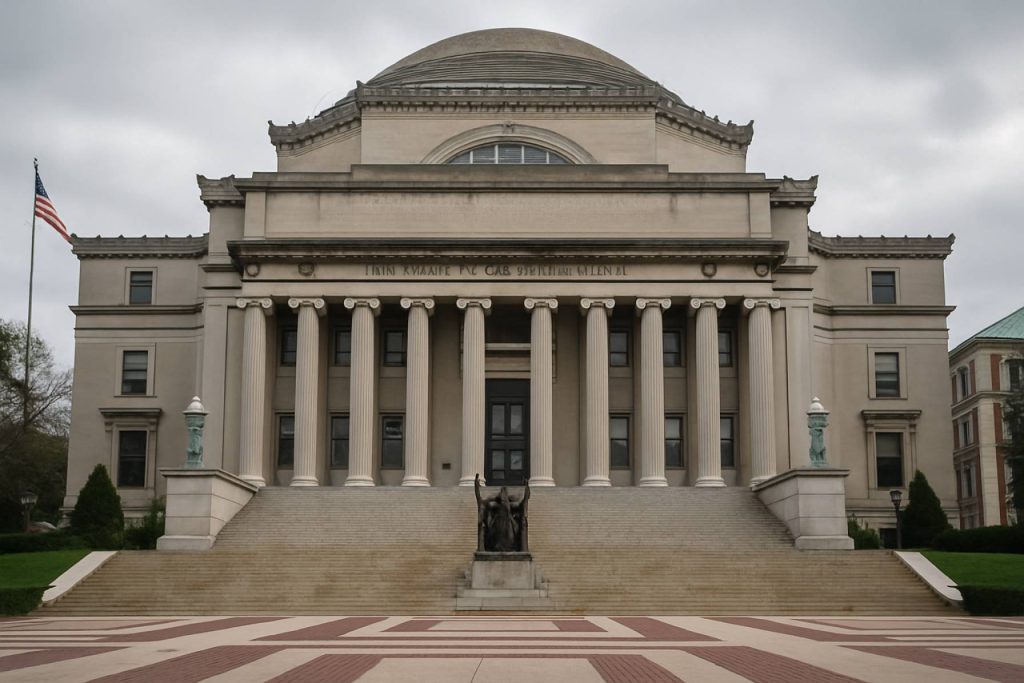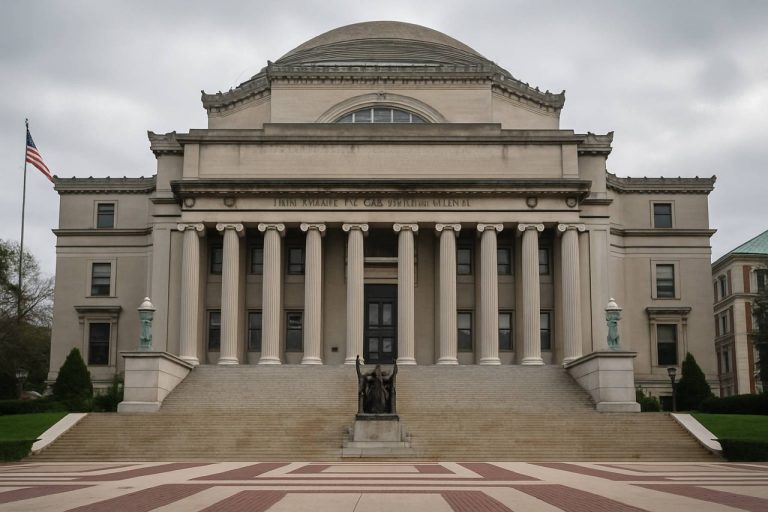
Columbia University Faces Massive Federal Showdown: Accreditation Threatened, $400 Million in Grants Axed Over Discrimination Allegations
The U.S. Education Department challenges Columbia University’s accreditation after claims of anti-discrimination failures spark national debate.
- $400M in federal grants cut from Columbia amid probe
- Columbia’s accreditation under review by Middle States
- Accreditors control eligibility for federal student aid
- Student protests drove national scrutiny in 2024-2025
Columbia University found itself at the center of a political firestorm this week as the Department of Education officially notified its accreditor, the Middle States Commission on Higher Education, of alleged violations of federal anti-discrimination laws. This unprecedented move could threaten the university’s prized accreditation and impact its access to crucial federal funds.
The results are already staggering: the loss of $400 million in federal grants and contracts, sweeping campus reforms, and mounting pressure from government officials.
The stakes for current and prospective students couldn’t be higher. If the Middle States Commission determines that Columbia failed to meet mandatory anti-discrimination standards, the university’s ability to distribute federal student loans and Pell Grants could evaporate overnight — funds that thousands rely on.
For more on the Department’s role in higher education, visit the U.S. Department of Education. Details about financial aid programs are available at Federal Student Aid.
Q: Why Is Columbia’s Accreditation in Jeopardy?
Federal investigators allege that Columbia failed to protect students from antisemitic harassment, especially during a wave of campus protests over Israel’s war in Gaza. A recent joint investigation with the Department of Health and Human Services found Columbia had acted with “deliberate indifference,” igniting a national conversation about university responsibility and campus safety.
Middle States, the accrediting body, acts as a safeguard, deciding which colleges maintain educational standards — a designation that determines eligibility for essential student aid.
Q: What Does This Mean for Students and Faculty?
Losing accreditation would be a seismic event, leaving current students in limbo, threatening transfers, and complicating federal financial aid options. As accreditors hold the keys to federal dollars, this probe could reshape campus life, academic offerings, and the university’s reputation globally.
How Is Columbia Responding?
Facing escalating demands from the administration, Columbia agreed in recent months to form a new disciplinary committee, launch investigations into student activism, and shift control of its Middle East studies department. University leadership continues to cycle, reflecting ongoing turmoil. Meanwhile, demonstrations show no sign of fading and pressure mounts as the school battles to regain federal confidence.
For background on institutional accreditation, visit the official Middle States Commission on Higher Education site. For news on the Ivy League and higher education trends, explore Reuters or The New York Times.
How Could This Reshape the Future of Higher Education?
This case spotlights new federal scrutiny of elite institutions and triggers debate about the role of accreditors as gatekeepers. If the administration’s push for stricter oversight continues in 2025, colleges nationwide may face similar investigations and rapidly shifting compliance standards.
Stay informed, take action, and check your plan:
- Follow link updates from ed.gov and msche.org.
- If you’re a student or parent, review your current financial aid status.
- Monitor campus communications for changes to policies.
- Consult with academic advisors about credit transfer or alternative funding.
Prepare now — higher education is changing fast. Stay ahead with trusted sources and proactive decisions.



